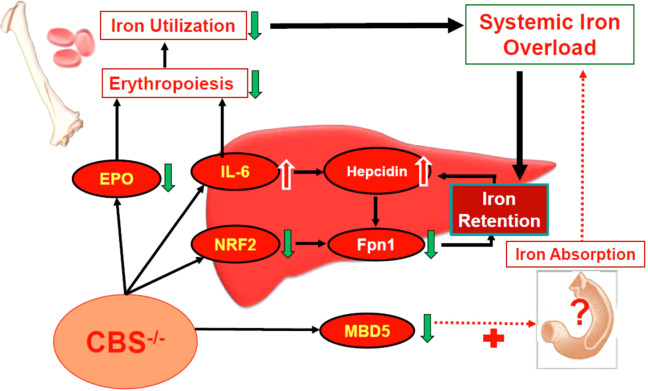
Cystathionine b-synthase (CBS) deficiency results in homocysteinuria, a rare genetic disorder characterized by a constellation of symptoms ranging from developmental delay to thromboembolism and megaloblastic anemia. Given that products of CBS metabolism interact with interlukin-6 (IL-6), a major determinant of iron stores, Prof. Zhong-Ming Qian in Fudan University and Prof. Ya Ke in Chinese University of Hong Kong hypothesized that CBS exerts an influence on the iron utilization pathway. They show for the first time that young CBS knockout (KO) mice exhibited increased iron contents of spleen, heart, and liver with increases in IL-6, hepcidin, and ferritin, among others. They also demonstrated that CBS KO mice have a decreased expression of erythropoietin and an increased iron contents in bone marrow derived macrophages. Reintroduction of the CBS gene back to CBS KO mice partially reduces iron contents. Overall, they demonstrated a previously unknown capacity of CBS to regulate iron metabolism through multiple mechanisms (Hepatology 67(1): 24-31,2018). It would be interesting to know whether CBS plays a similar role in human iron homeostasis and disease.

A hypothetical scheme for the mechanisms of iron overload in CBS-/- mice